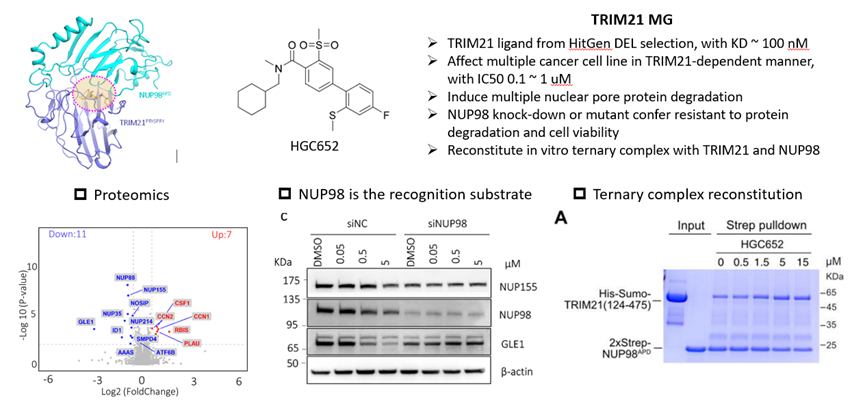HitGen's Targeted Protein Degradation Platform integrates DEL, PROTAC synthesis, and biological validation to address historically undruggable targets.
Molecular glue (MG) is a monovalent molecule that brings two proteins in proximity as if they are glued together. This mechanism of action has been reported in different contexts. In protein degradation case, it induces POI:MG:E3 complex formation with the following several possible events: 1) MG significantly enhances POI:E3 interaction; 2) MG binds to POI, followed by recognition of E3; 3) MG binds to E3 ligase to allow the recognition of neosubstrate. Only proper binding pose(s) between POI and E3 allow ubiquitination and proteasome degradation. Molecular glue is a desired protein degrader, but it’s much more challenging for discovery or design, which is evidenced with less targets and programs in the clinical.
HitGen identified KD~100 nM TRIM21 ligands through DEL library screening, with subsequent validation revealing their molecular glue functionality and TRIM21-dependent growth inhibition in cancer cells. Mechanistically, TRIM21 ligand HGC652 facilitates TRIM21::NUP98 complex formation, triggering degradation of essential nuclear pore complex components and subsequent collapse of nuclear envelope integrity. These findings have been published in ACS Chem. Bio. 2025.

We use cookies to provide a better web experience.
By using our site, you acknowledge our use of cookies and please read our Cookie Notice for
More information